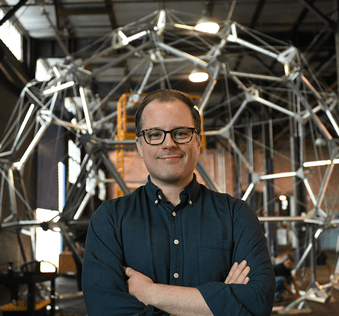
Close
result
What the participants said
Professional yet personal
CEO of the Chief of Staff Association

Albert R. Antosca

3 min read


‘…there’s something ineffably valuable and transformative about the experience that’s hard to fully articulate, but you know you’re always going to carry it with you in some way.’
When I took on the role of chief of staff, it was at a new startup company – so things there were new and not well established. I wanted to figure out the best practices of that role, and understand who were the main conveners of professionals in that space. This led me to the Chief of Staff Association, which stood out to me as the leading organisation for Chiefs of Staff. I was impressed with their resources and saw value in the opportunity for professional development in the Oxford programme.
I had arrived in Oxford with the expectation that we would sit in a classroom to listen to lectures and take notes, so I was pleasantly surprised to discover how interactive and experiential the programme was. Some of the key ideas came from the lecturers and other speakers, but the overall experience of commiserating with other chiefs of staff was refreshing; I think many felt it was a quite open environment, unencumbered by the kinds of power imbalances one might find in their own workplace. The experience of engaging with a community of like-professionals gave me a way of mapping the landscape of what a chief of staff looks like, and by triangulating my own position relative to my peers I gained a better understanding of how the role could work in my own organisation. Being a Chief of Staff can be quite isolating, and this unique level of engagement was unbelievably useful.
It's not the sort of programme where you simply walk away with a set of new technical tools in your toolbelt or some specific hard skills that you learnt. It’s more like being a young student again and taking a year out to backpack through Europe: there’s something ineffably valuable and transformative about the experience that you perhaps can’t quite articulate, but you know you’re always going to carry it with you.
During my PhD I studied some mediaeval history, so was delighted to be in a place of such cultural significance. I was truly impressed by the level of access we were given, and the quality of the curated experiences we had. Like everyone else, I had never experienced anything like the choir conducting workshop with Peter Hanke in the historic chapel of Balliol College. It was impressive watching people who were willing to open themselves up to doing something completely new in front of an audience, where they were bound to initially fail. None of us had any skills in that area, but we each learned from the others’ attempts. One after the other, a different member of the cohort would conduct the singers, with the instructor adding a new layer of insight after each turn. I was the last person in my cohort to attempt this exercise, and it was such a memorable and magical experience.
Even though the programme is about professional development, it's also profoundly personal. It is absolutely worth experiencing because it has the potential to impact your life in so many different and unexpected ways. I found that each member of our cohort gained something uniquely personal from it.
Author Bio
Albert R. Antosca
Chief of Staff, Aurelia Institute
Dr. Albert R. Antosca is one of the founding members of Aurelia Institute, a space architecture R&D lab, education and outreach center, and policy hub spun out of the MIT Media Lab.
Prior to MIT and Aurelia, Albert worked in aviation as a commercial airline captain, private jet pilot, and flight instructor. He later transitioned from professional flying into academia, working as a professor of humanities at multiple academic institutions.
He holds a BS in Aeronautical Science, an MA in International Relations, and a PhD in Humanities (spec. Philosophy of Technology).





